CUPRA Born vs Toyota C-HR - Differences and prices compared
Costs and Efficiency:
Looking at overall running costs, both models reveal some interesting differences in everyday economy.
Toyota C-HR has a somewhat advantage in terms of price – it starts at 29100 £, while the CUPRA Born costs 34700 £. That’s a price difference of around 5537 £.
As for range, the CUPRA Born performs clearly better – achieving up to 594 km, about 526 km more than the Toyota C-HR.
Engine and Performance:
Power, torque and acceleration are the classic benchmarks for car enthusiasts – and here, some clear differences start to show.
When it comes to engine power, the CUPRA Born has a clearly perceptible edge – offering 326 HP compared to 223 HP. That’s roughly 103 HP more horsepower.
In acceleration from 0 to 100 km/h, the CUPRA Born is evident quicker – completing the sprint in 5.60 s, while the Toyota C-HR takes 7.40 s. That’s about 1.80 s faster.
In terms of top speed, the CUPRA Born performs minimal better – reaching 200 km/h, while the Toyota C-HR tops out at 180 km/h. The difference is around 20 km/h.
Space and Everyday Use:
Cabin size, boot volume and payload all play a role in everyday practicality. Here, comfort and flexibility make the difference.
Seats: offers more seating capacity – vs .
In curb weight, Toyota C-HR is distinct lighter – 1505 kg compared to 1828 kg. The difference is around 323 kg.
In terms of boot space, the Toyota C-HR offers somewhat more room – 447 L compared to 385 L. That’s a difference of about 62 L.
In maximum load capacity, the CUPRA Born performs minimal better – up to 1267 L, which is about 112 L more than the Toyota C-HR.
When it comes to payload, CUPRA Born barely noticeable takes the win – 452 kg compared to 425 kg. That’s a difference of about 27 kg.
Who comes out on top?
Overall, the CUPRA Born shows itself to be is largely superior and secures the title of DriveDuel Champion.
It convinces with the more balanced overall package and proves to be the more versatile choice for everyday use.
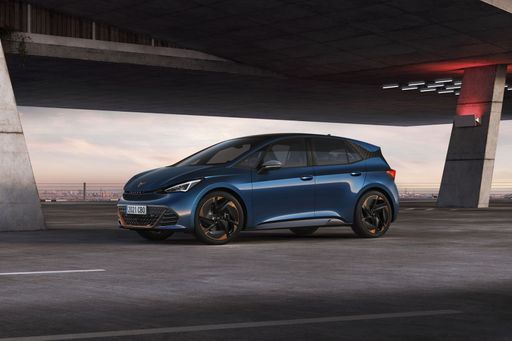 @ CUPRA / SEAT S.A.
@ CUPRA / SEAT S.A.
CUPRA Born
Costs and Consumption
View detailed analysis
Engine and Performance
View detailed analysis
Dimensions and Body
View detailed analysis
CUPRA Born
The CUPRA Born blends sharp, athletic styling with a playful electric character, delivering hatchback agility and hot-hatch attitude whether you're darting through the city or cruising the open road. Inside, the cabin punches above its weight with smart materials and practical space, making it a compelling pick for buyers who want electric motoring without surrendering the grin.
details @ CUPRA / SEAT S.A.
@ CUPRA / SEAT S.A.
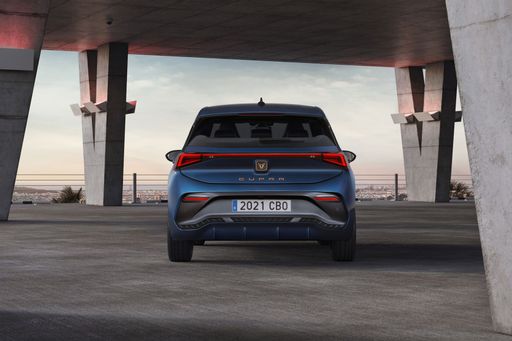 @ CUPRA / SEAT S.A.
@ CUPRA / SEAT S.A.
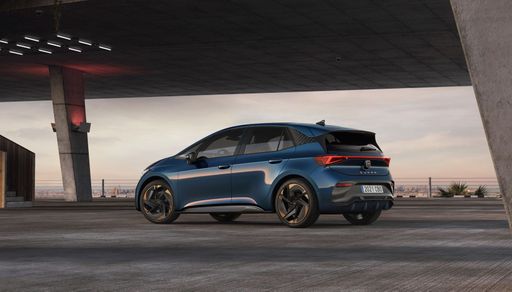 @ CUPRA / SEAT S.A.
@ CUPRA / SEAT S.A.
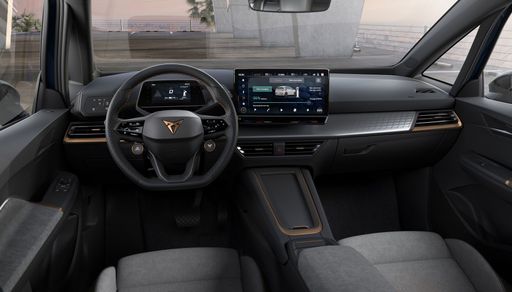 @ CUPRA / SEAT S.A.
@ CUPRA / SEAT S.A.
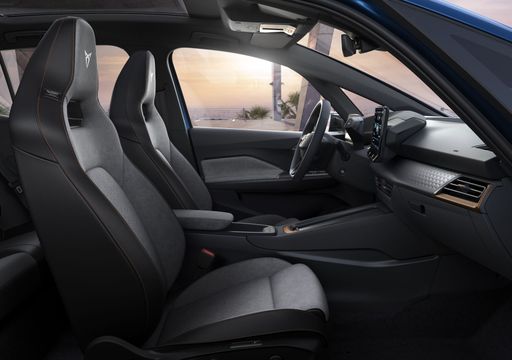 @ CUPRA / SEAT S.A.
@ CUPRA / SEAT S.A.
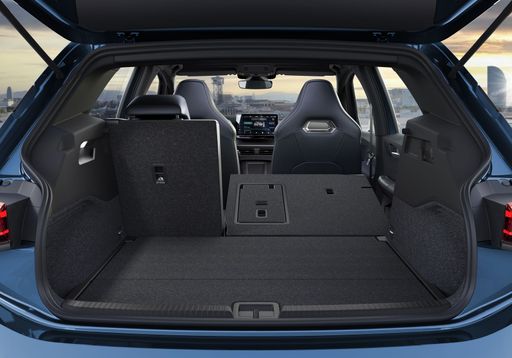 @ CUPRA / SEAT S.A.
@ CUPRA / SEAT S.A.
Toyota C-HR
The Toyota C-HR cuts a striking figure with its angular styling and coupe-like profile, so you’ll never go unnoticed in the supermarket car park. It balances everyday practicality with a nimble, city-friendly personality, making routine commutes feel a touch more fun without asking for forgiveness.
details @ Toyota Motor Corporation
@ Toyota Motor Corporation
 @ Toyota Motor Corporation
@ Toyota Motor Corporation
 @ Toyota Motor Corporation
@ Toyota Motor Corporation
 @ Toyota Motor Corporation
@ Toyota Motor Corporation
 @ Toyota Motor Corporation
@ Toyota Motor Corporation
 @ CUPRA / SEAT S.A.
@ CUPRA / SEAT S.A.
|
 @ Toyota Motor Corporation
@ Toyota Motor Corporation
|
|
|
|
Costs and Consumption |
|
|---|---|
|
Price
34700 - 45300 £
|
Price
29100 - 42800 £
|
|
Consumption L/100km
-
|
Consumption L/100km
0.8 - 5.1 L
|
|
Consumption kWh/100km
14.9 - 16 kWh
|
Consumption kWh/100km
-
|
|
Electric Range
427 - 594 km
|
Electric Range
68 km
|
|
Battery Capacity
60 - 79 kWh
|
Battery Capacity
-
|
|
co2
0 g/km
|
co2
17 - 115 g/km
|
|
Fuel tank capacity
-
|
Fuel tank capacity
43 L
|
Dimensions and Body |
|
|---|---|
|
Body Type
Hatchback
|
Body Type
SUV
|
|
Seats
5
|
Seats
5
|
|
Doors
5
|
Doors
5
|
|
Curb weight
1828 - 1999 kg
|
Curb weight
1505 - 1755 kg
|
|
Trunk capacity
385 L
|
Trunk capacity
350 - 447 L
|
|
Length
4324 mm
|
Length
4362 mm
|
|
Width
1809 mm
|
Width
1832 mm
|
|
Height
1540 mm
|
Height
1558 - 1564 mm
|
|
Max trunk capacity
1267 L
|
Max trunk capacity
1076 - 1155 L
|
|
Payload
431 - 452 kg
|
Payload
375 - 425 kg
|
Engine and Performance |
|
|---|---|
|
Engine Type
Electric
|
Engine Type
Full Hybrid, Plugin Hybrid
|
|
Transmission
Automatic
|
Transmission
Automatic
|
|
Transmission Detail
Reduction Gearbox
|
Transmission Detail
CVT
|
|
Drive Type
Rear-Wheel Drive
|
Drive Type
Front-Wheel Drive, All-Wheel Drive
|
|
Power HP
204 - 326 HP
|
Power HP
140 - 223 HP
|
|
Acceleration 0-100km/h
5.6 - 7.7 s
|
Acceleration 0-100km/h
7.4 - 9.9 s
|
|
Max Speed
160 - 200 km/h
|
Max Speed
175 - 180 km/h
|
|
Torque
265 - 545 Nm
|
Torque
-
|
|
Number of Cylinders
-
|
Number of Cylinders
4
|
|
Power kW
150 - 240 kW
|
Power kW
103 - 164 kW
|
|
Engine capacity
-
|
Engine capacity
1798 - 1987 cm3
|
General |
|
|---|---|
|
Model Year
2024 - 2025
|
Model Year
2024 - 2025
|
|
CO2 Efficiency Class
A
|
CO2 Efficiency Class
C, B
|
|
Brand
CUPRA
|
Brand
Toyota
|
What drivetrain options does the CUPRA Born have?
The CUPRA Born is available as Rear-Wheel Drive.
The prices and data displayed are estimates based on German list prices and may vary by country. This information is not legally binding.
